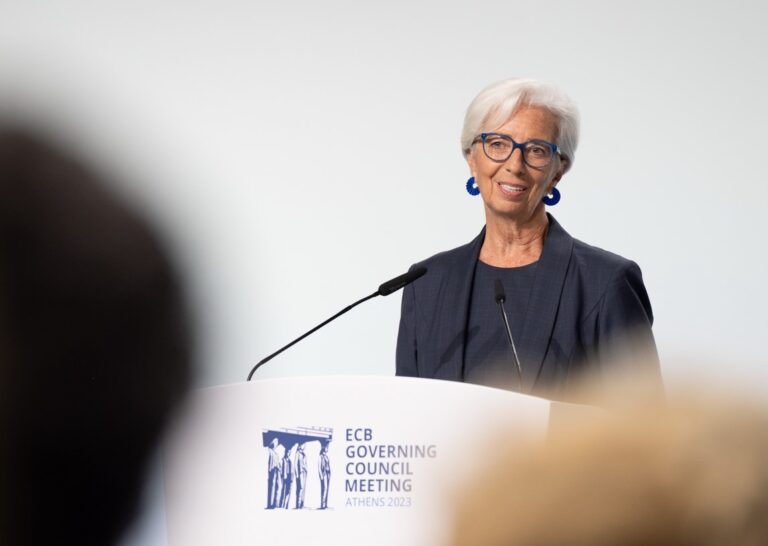For the European Central Bank, the recession risk is not yet over. And, indeed, is still a possible scenario for the European economy and the eurozone.
Table of Contents
The ECB’s statements
According to the ECB’s statements, recession for the eurozone remains a possible scenario in the face of the deterioration of the already weak economic scenario.
Also, there are real risks that this scenario could deteriorate further with an inflexible downward trend. In other words, for the ECB the current economic scenario of the eurozone is not yet safe from a possible recession. And this is because of the still very high inflation rates.
The ECB over the past year and a half has deployed several strategies to curb the rise in inflation. Starting with monetary tightening and raising key interest rates.
However, says the ECB, the full impact of rates on the economy has yet to materialize. As a result, the outlook for the future stability of the European economy continues to be fragile.
In addition, the ECB points out, markets continue to be exposed to adverse macroeconomic conditions as a result of geopolitical developments particularly the two major conflicts in Eastern Europe and the Middle East.
Conflicts between Russia and Ukraine, Israel and Hamas, and tensions between China and Taiwan represent a source of uncertainty for the global economy that directly reflects on the European economy.
GDP data
According to the ECB’s Financial Stability Report, released in the morning of Nov. 22, 2023, high risks are estimated for GDP in the coming year.
To be more precise, according to the report, there is a 5 percent probability that economic growth in the next 12 months could be less than -1.6 percent. In other words, economic growth is expected to be between 1 percent and 2 percent.
This contraction appears quite severe. And suggests the existence of concrete downside risks to economic activity in the eurozone as a whole, with slight variations from country to country.
Luis de Guindos’ position
According to Luis de Guindos, the ECB’s number two acting vice president, it is crucial for the ECB to remain vigilant as the economy moves from a rising interest rate environment. This, as a result of the weak economic outlook and high inflation are straining the ability of individuals, businesses and governments to honor their debt.
In addition, nonbank financial markets and institutions, per de Guindos, remain highly sensitive to adverse developments in the global economy consequently, their vulnerabilities could be overexposed to economic contraction.
At the same time, eurozone banks, have proven able to withstand the various shocks following the pandemic and their profitability is increasing.
Read also: What is the difference between economic recession and depression












